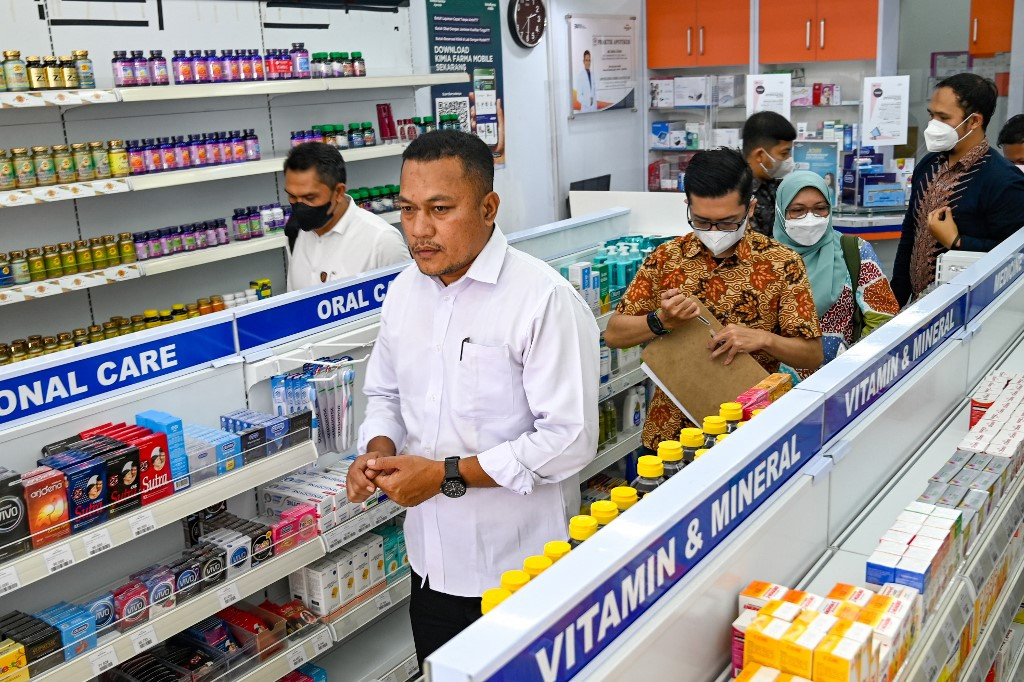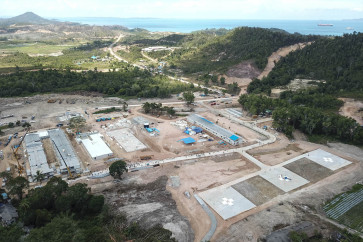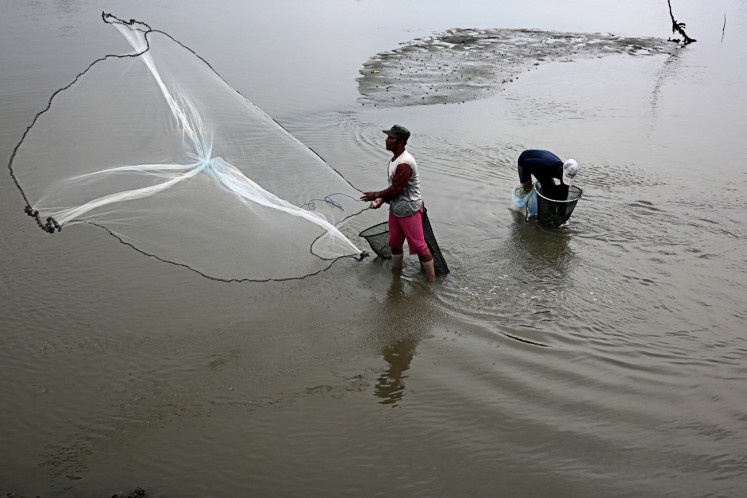Popular Reads
Top Results
Can't find what you're looking for?
View all search resultsPopular Reads
Top Results
Can't find what you're looking for?
View all search resultsPolice mull criminal charges against firms in AKI scandal
The National Police’s Criminal Investigation Department (Bareskrim) is considering criminal charges against two pharmaceutical companies for producing toxic medicines that have caused a spike in acute kidney injury (AKI) cases.
Change text size
Gift Premium Articles
to Anyone
T
he National Police’s Criminal Investigation Department (Bareskrim) is considering criminal charges against two pharmaceutical companies for producing toxic medicines that have caused a spike in acute kidney injury (AKI) cases, which has left dozens of children dead this year.
“We have been appointed to enforce the law and investigate into this matter,” Bareskrim’s head of special criminal division Brig. Gen. Pipit Rismanto said, at a joint press conference with the Food and Drug Monitoring Agency (BPOM) in Serang, Banten, on Monday.
The police and BPOM are alleging PT Yarindo Farmatama and PT Universal Pharmaceuticals for breaching the law by producing and distributing pharmaceutical products that failed to meet safety and quality standards as detailed by Law No. 36/2009 on Health. The offense carries a maximum sentence of 10 years and Rp 1 billion (US$64,042) in fines.
Following a spike in August, the Health Ministry has so far reported 304 AKI cases -- most of which occurred among infants -- of which 159 resulted in death.
Pipit adds that as they are still currently investigating the case, the list of charges might increase.
“It’s possible that consumer protection laws and trade laws might be eventually relevant [in the case] as well,” said Pipit.
“If it’s a production issue, we’ll hold the company responsible. If it’s a rogue individual or some other unknown party, then we’ll hold them responsible,” said Pipit.
As part of their investigation, BPOM and the police have confiscated syrups, ingredients and various documents from the two companies for further investigation.
Previously, BPOM listed Yarindo’s Flurin DMP syrup and three of Universal’s Unibebi syrups as commercially available medicinal syrups that contain ethylene glycol (EG) and diethylene glycol (DEG) above the safety limit.
These potentially toxic compounds are contaminants of polyethylene glycol and propylene glycol, two solvents commonly used by the pharmaceutical industry.
Supply chain issues
BPOM chief Penny Lukito said that the propylene glycol used in the Flurin DMP syrup contains 48 milligrams per milliliter of EG with 0.1 mg/ml being the safety limit.
The agency suspects that the companies decided to switch to a lower-quality propylene glycol, possibly to save costs, without informing the agency and without performing due diligence on the new solvent.
Penny further explains that the price difference between a pharmaceutical-grade and industrial-grade solvent is quite significant, as the industrial-grade solvents are not subjected to the same rigorous purification process.
“So when a company wants to switch suppliers, they have to submit a request, which we’ll have to verify first,” said Penny.
In their investigation, BPOM and the police found that both Yarindo and Universal use solvents from Dow Chemical Thailand, although sourced from different distributors, with CV Budiarta acting as the distributor for Yarindo and Petrologi Construction for Universal.
Penny also said that as Dow Chemical is a multinational company with extensive experience in chemicals, the authorities might be dealing with counterfeit products in the case.
Yarindo’s legal manager Vitalis Jebarus, refutes BPOM’s accusations. “A distribution permit [from BPOM] shows that we’ve already been using pharmaceutical grade from Dow Chemical since 2020, and we have the certificate of analysis [COA] to back that up,” Vitalis told Tempo on Monday.
In a statement sent to Reuters, Dow Chemical Thailand said that “none of the suppliers mentioned by BPOM are our customers”.
Deadly consequences
The police have yet to consider criminal charges related to the deaths, saying they would wait for the Health Ministry to conclude their investigation into the main cause of acute kidney injury cases.
In a press conference on Tuesday, Health Ministry spokesman Mohammad Syahril maintained that intoxication from tainted medicinal syrups is still the number one suspect for the deaths.
“In biopsies on kidneys of the patients who’ve died, we found crystals of calcium oxalates, which is how our bodies metabolize EG and DEG,” said Syahril.
These crystals can wreck kidneys, which is why the ministry’s investigation has narrowed down tainted medicinal syrups as the main cause of AKI, he explained.
Syahril also mentioned the downward trend of AKI cases as possible evidence. “Since Oct. 18, when the ministry announced a ban on medicinal syrups, the cases and fatalities have slowed down,” said Syahril.










